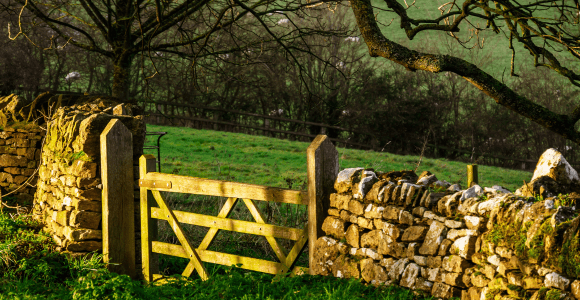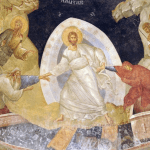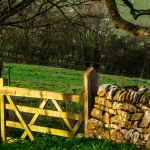
Our subject this week is the fulness of life for everyone and our reading is from the gospel of John.
“Very truly I tell you Pharisees, anyone who does not enter the sheep pen by the gate, but climbs in by some other way, is a thief and a robber. The one who enters by the gate is the shepherd of the sheep. The gatekeeper opens the gate for him, and the sheep listen to his voice. He calls his own sheep by name and leads them out. When he has brought out all his own, he goes on ahead of them, and his sheep follow him because they know his voice. But they will never follow a stranger; in fact, they will run away from him because they do not recognize a stranger’s voice.” Jesus used this figure of speech, but the Pharisees did not understand what he was telling them.
Welcome Readers! Please subscribe to Social Jesus Here.
Therefore Jesus said again, “Very truly I tell you, I am the gate for the sheep. All who have come before me are thieves and robbers, but the sheep have not listened to them. I am the gate; whoever enters through me will be saved. They will come in and go out, and find pasture. The thief comes only to steal and kill and destroy; I have come that they may have life, and have it to the full.” (John 10:1-10*)
The language we encounter in this week’s reading, about shepherds, sheep, sheep pens, and gates, had a context in the Jewish scriptures. Let’s look at two examples as a foundation for our discussion this week.
“I will place over them one shepherd, my servant David, and he will tend them; he will tend them and be their shepherd. I the LORD will be their God, and my servant David will be prince among them. I the LORD have spoken. ‘I will make a covenant of peace with them and rid the land of savage beasts so that they may live in the wilderness and sleep in the forests in safety. I will make them and the places surrounding my hill a blessing. I will send down showers in season; there will be showers of blessing. The trees will yield their fruit and the ground will yield its crops; the people will be secure in their land. They will know that I am the LORD, when I break the bars of their yoke and rescue them from the hands of those who enslaved them. They will no longer be plundered by the nations, nor will wild animals devour them. They will live in safety, and no one will make them afraid. I will provide for them a land renowned for its crops, and they will no longer be victims of famine in the land or bear the scorn of the nations. Then they will know that I, the LORD their God, am with them and that they, the Israelites, are my people, declares the Sovereign LORD. You are my sheep, the sheep of my pasture, and I am your God, declares the Sovereign LORD.’” (Ezekiel 34:23-31)
What jumps out to me is the deeply political, concrete and material role the shepherd plays as a conduit of liberation and the means of governing and protecting the nation. The shepherd was not a private, individual, or spiritual image in the Jewish tradition as it has become in the Christian tradition.
So how did the Jesus community come to spiritualize the image of the shepherd? We’ll consider that, next.
(Read Part 2)














